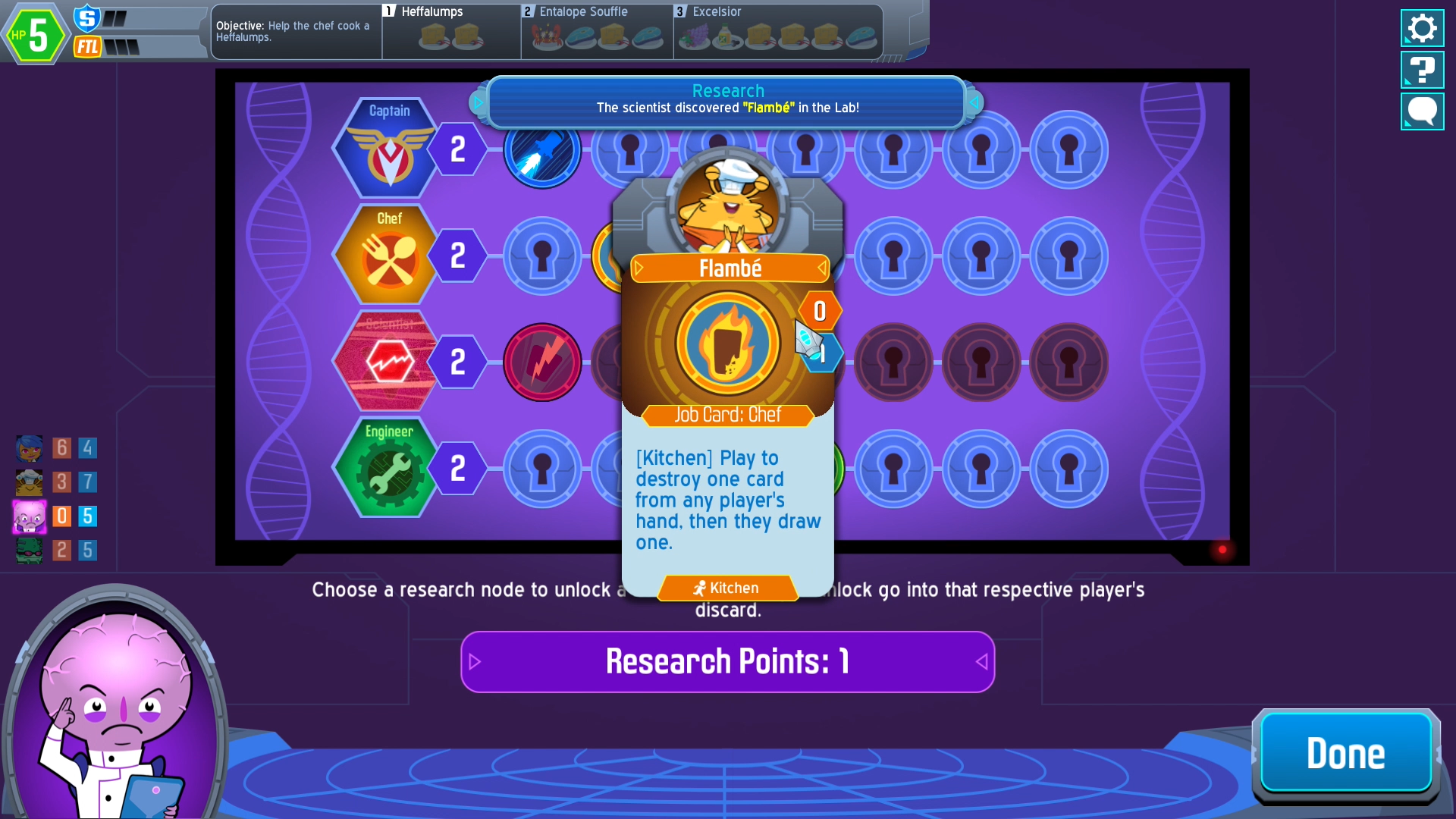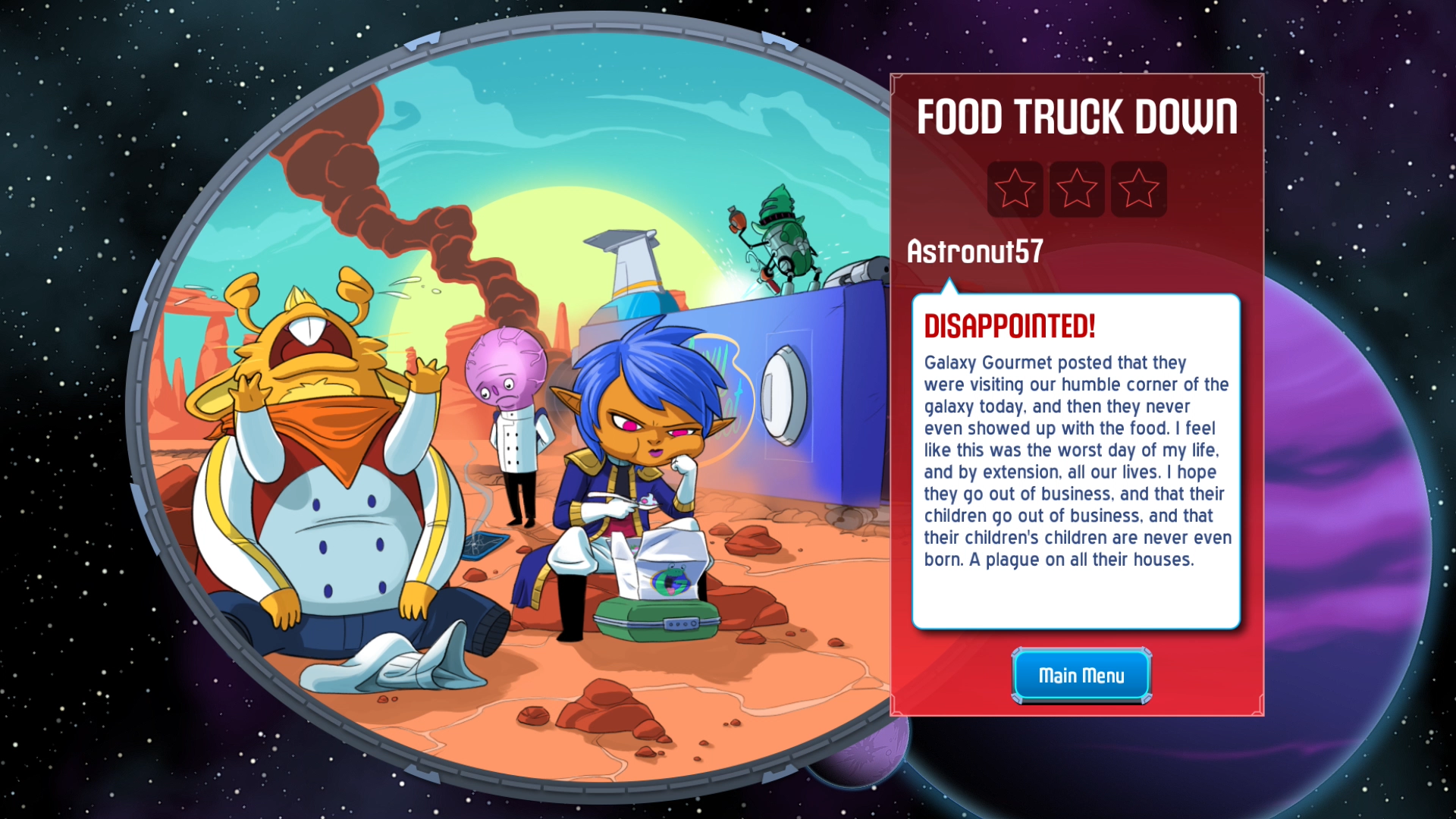
Co-Optimus: Has there been any discussion around adding a mode to the game that could only be played with other players?
Adam: Our local mode can function as a single player, but it was really intended for couch co-op. I love couch co-op, so I wouldn't be in favor of an "online only" mode just for the sake of it. But I guess if we had an idea that required players to keep their cards secret, there's no good way to do that on one screen.
Co-Optimus: Shifting gears a bit, let's talk about game balancing. The game is still in an early state and subject to change, but based on game updates thus far, I know you've received a lot of feedback from players about the game's difficulty. When you're looking at this feedback and playtesting the game yourself, do you have in mind some percentage of success? For example, based on a sample of 10 games played, 7 of those should be success and 3 should be a failure. Is there a metric you use?
Adam: We're working on multiple difficulties at the moment to try and provide something fun for every skill level. Our current thinking is: if we use the same good strategies every session, knowing the game as well as we do, we should be able to beat our "normal" mode something like 80% of the time. So if 1 in 5 games we have bad luck and die hilariously, that's okay. A 100% win-rate means we have a solvable game, which we're not going for, because there's not a lot of fun to be had replaying a game you've solved. But if we get too close to a 50% win rate, that's a coin flip and that's absolutely a problem. At the same time, we're paying close attention to what our Early Access users are saying about difficulty and looking over their data separately from our own.
[Editor's Note: An update was recently released for the title that added three difficulty levels to the game]
Co-Optimus: There's a lot of random chance involved with any given player turn; what events he/she encounters, what cards are in his/her hand when that event occurs, what else has happened on the ship (e.g., a door breaking) that may prevent them from taking any action, what cards are available for them to purchase, and so on. Do you feel that that randomness is well balanced? Has any thought been given to implementing mechanics, such as players being able to address events as a group, to help alleviate some of that randomness?
Adam: That's a good question. When you make or even play a card game, you've kind of already decided that randomness is going to be part of the fun. So we're constantly evaluating how to give players enough outs to know that their choices matter, but not so many that they're never surprised. And it's easy for us to forget that our players don't know the calculated odds for anything, they only know what they've drawn. For example: when traveling, one in three planets has a negative event, and almost all of those can be dodged if you save some power cards for it. So it might feel totally random at first, but with some experience we hope you learn that traveling with 4 power in your hand is a very safe bet, and there's nothing in our arrival events that will directly damage your ship. The event deck is also gated off to control for randomness. The odds and consequences get worse every 15 turns or so. We're constantly on the lookout for anecdotes from players complaining about randomness, and debating what is or isn't fair to the player. It's as much an art as it is a science.

Co-Optimus: When I play Space Food Truck, I'm aware of the fact that I'm bringing with me a lot of my own bias and experiences from other deckbuilding games I've played over the years. Not all of that knowledge is beneficial. Is there anything in the game, or anything planned, to address that sort of player bias and/or help guide players towards certain strategies that will help?
Adam: We'll be updating our tutorial videos once the game is closer to final, and we've been hearing that those are pretty helpful for getting started. I think it's normal for players to bring their own hypothesis to the table, then tweak it until it works. That's part of the fun of buying a new game; it's a fresh puzzle to solve. I imagine you'd be pretty bored if the strategy that worked on your last deckbuilder immediately solved this one.
Co-Optimus: What do you feel is the most important part to get right with a game like this?
Adam: Making losing fun. You kind of get a free pass on that for co-op games, though. Talking trash to your friend for screwing everything up is like it's own reward. But if you can pull out a PvE co-op board game and have fun with it whether you win or lose, that's a perfect board game.